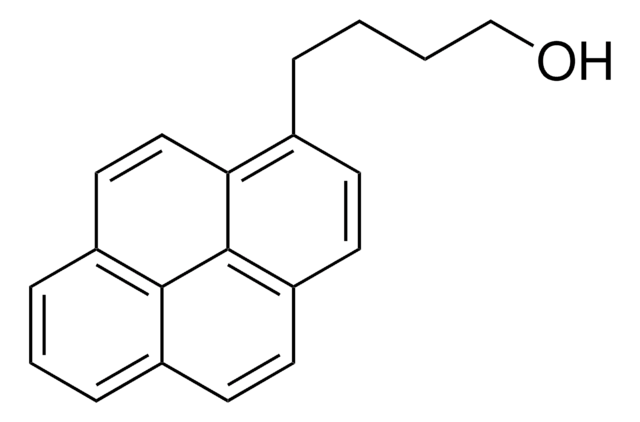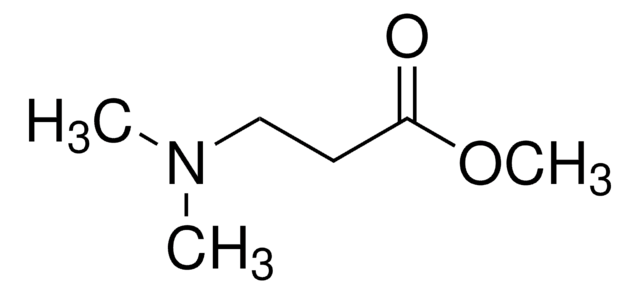257354
1-Pyrenebutyric acid
97%
Synonym(s):
4-(1-Pyrenyl)butyric acid, PyBA
About This Item
Recommended Products
Assay
97%
form
powder
mp
184-186 °C (lit.)
fluorescence
λex 341 nm; λem 376 nm in methanol
λex 342 nm; λem 395 nm (Reaction product)
SMILES string
OC(=O)CCCc1ccc2ccc3cccc4ccc1c2c34
InChI
1S/C20H16O2/c21-18(22)6-2-3-13-7-8-16-10-9-14-4-1-5-15-11-12-17(13)20(16)19(14)15/h1,4-5,7-12H,2-3,6H2,(H,21,22)
InChI key
QXYRRCOJHNZVDJ-UHFFFAOYSA-N
Looking for similar products? Visit Product Comparison Guide
General description
Application
Signal Word
Warning
Hazard Statements
Precautionary Statements
Hazard Classifications
Eye Irrit. 2 - Skin Irrit. 2 - STOT SE 3
Target Organs
Respiratory system
Storage Class Code
11 - Combustible Solids
WGK
WGK 3
Flash Point(F)
Not applicable
Flash Point(C)
Not applicable
Personal Protective Equipment
Certificates of Analysis (COA)
Search for Certificates of Analysis (COA) by entering the products Lot/Batch Number. Lot and Batch Numbers can be found on a product’s label following the words ‘Lot’ or ‘Batch’.
Already Own This Product?
Find documentation for the products that you have recently purchased in the Document Library.
Customers Also Viewed
Articles
Nitric oxide (NO) as a signal transporter in neurons, endothelial cells and in the immune system.
Our team of scientists has experience in all areas of research including Life Science, Material Science, Chemical Synthesis, Chromatography, Analytical and many others.
Contact Technical Service











